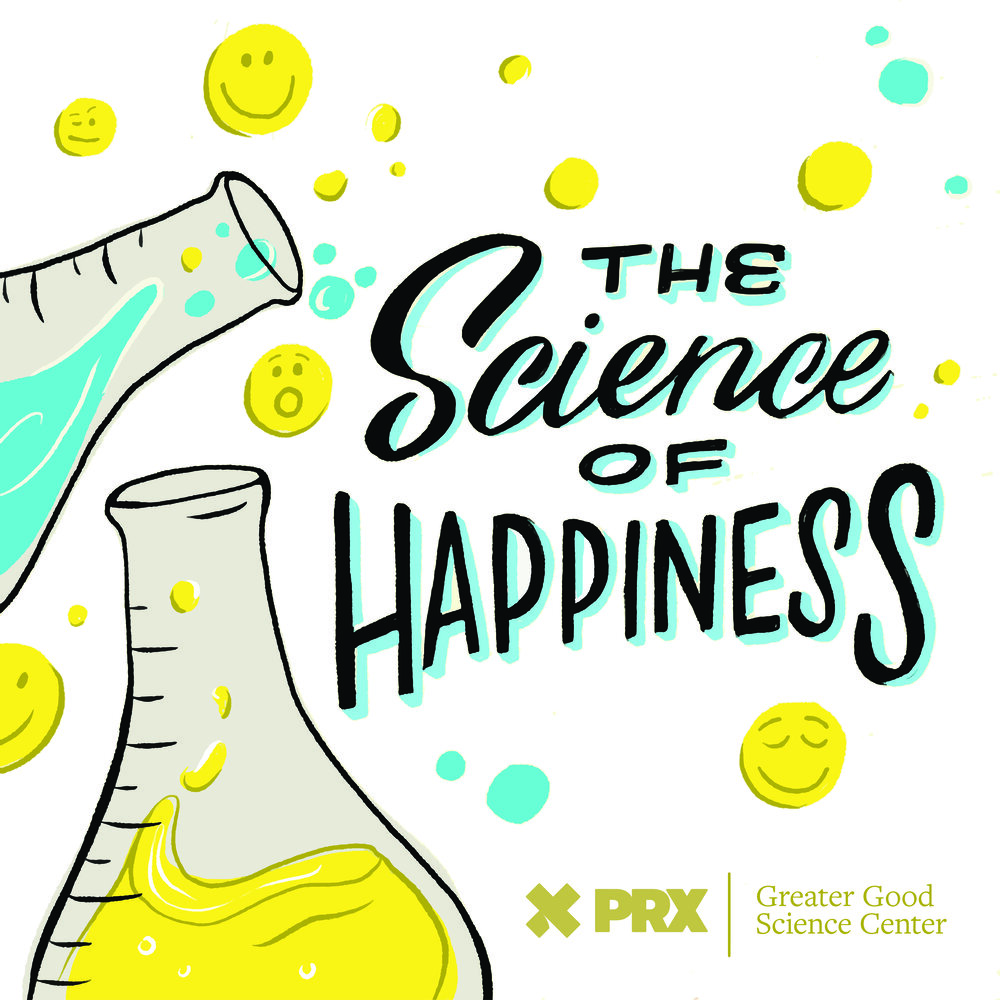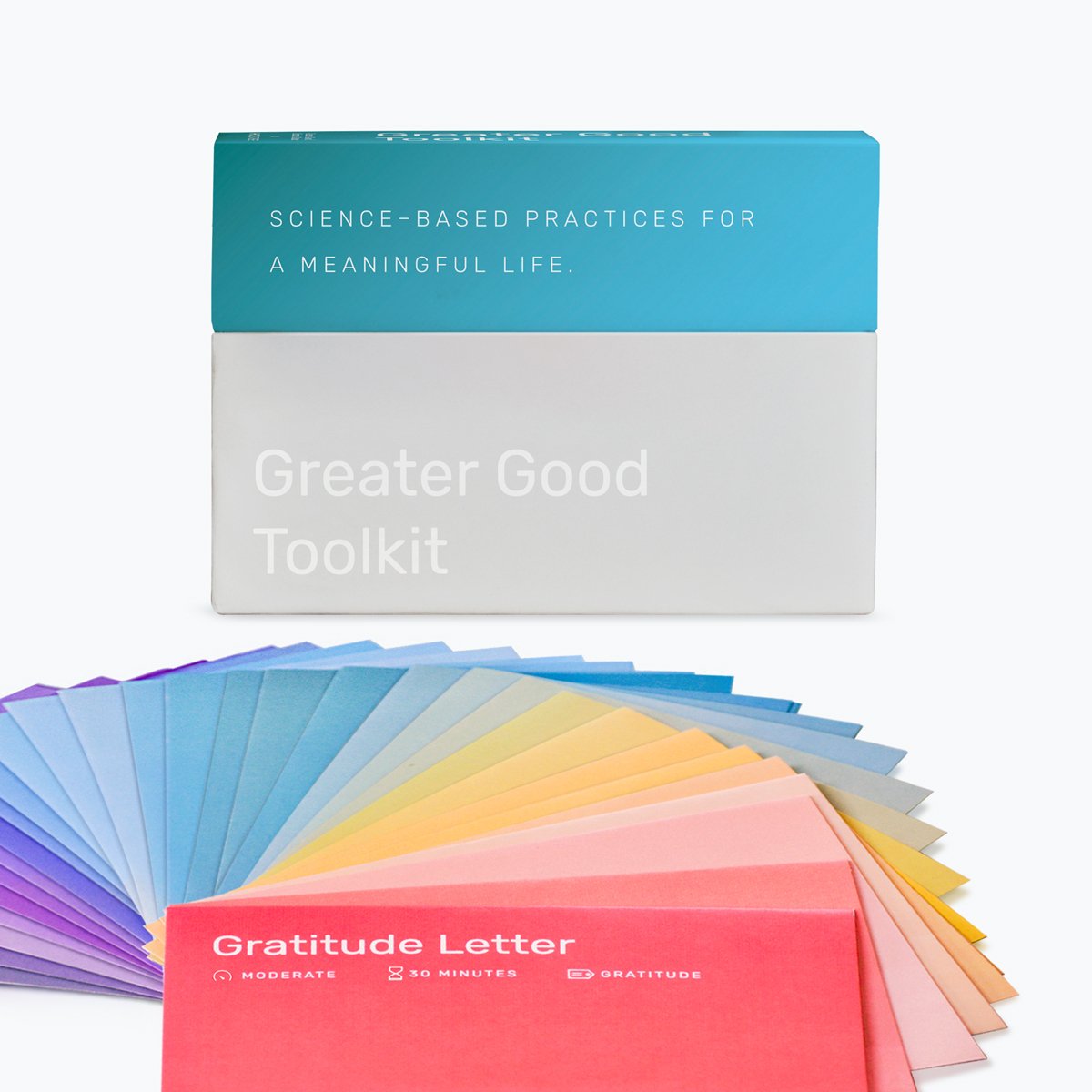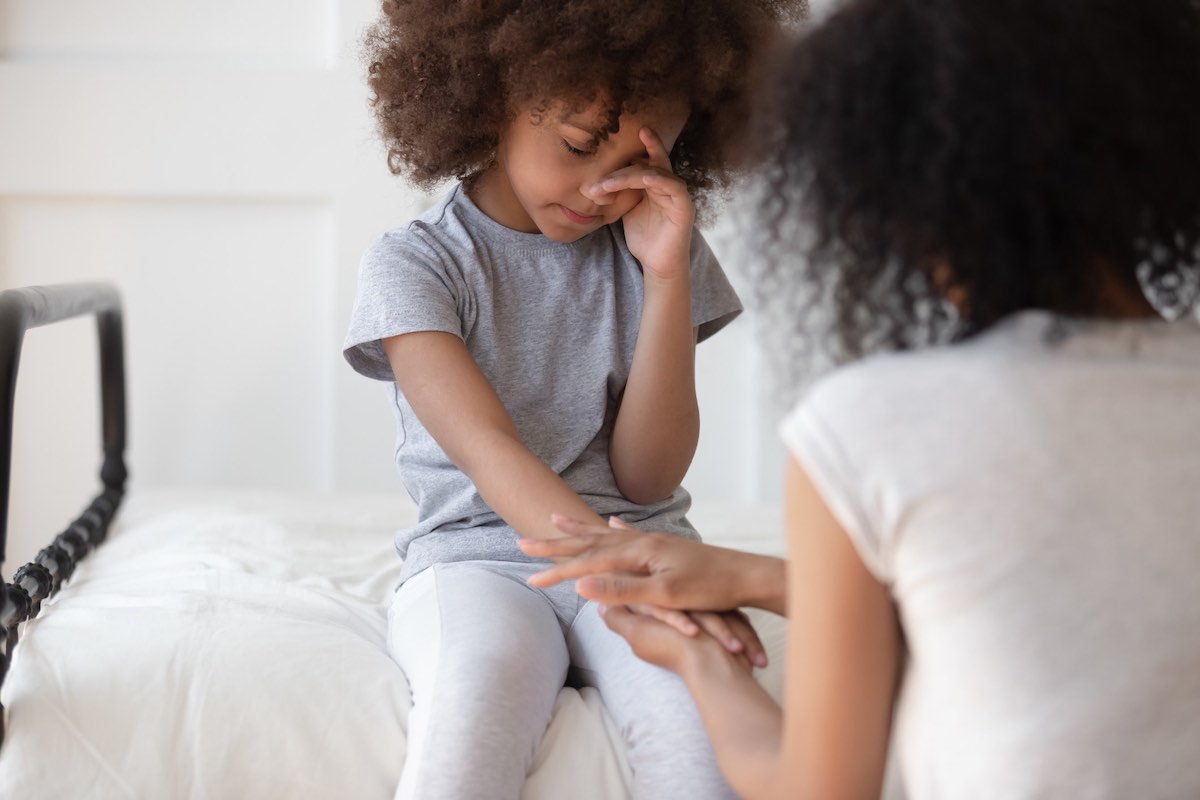At Greater Good, our mission is to share scientific research that can help promote a happier, more compassionate society. With the recent COVID-19 outbreak, we’re committed to bringing you stories, tips, and tools for these uncertain times in our global community.
We’ll continue to update this page with resources for individuals, families, and educators. You can read our latest coronavirus coverage, or start with these key articles:
- Stumbling Into the Next Stage of Your Pandemic Life: A therapist explores the psychology of coming back from the big pandemic pause.
- Eleven Questions to Ask About COVID-19 Research: How can you tell if a scientific study about the pandemic is valid and useful? We have some tips.
- Five Ways to Respond to People Who Don’t Want the COVID-19 Vaccine: Here are some research-based guidelines to help people overcome their vaccine hesitancy.
- How to Communicate When Everyone Is Wearing a Mask: People are paying a communications penalty for covering their faces against COVID-19. But the science suggests we can still get a lot across.
- Seven Ways the Pandemic Is Affecting Our Mental Health: You’re not alone—people around the world are depressed, anxious, and stressed, some more than others.
- How to Keep the Greater Good in Mind During the Coronavirus Outbreak: Beyond good hygiene, follow these tips to help others with the way you think, feel, and communicate.
- Five Ways to Encourage Safe Behavior During the Pandemic: Research provides some tips on how to get each other to wear masks, wash our hands, and keep distance.
Other resources below (click to jump to a section):
Lessons for post-pandemic life
Resources for stress and anxiety
Resources for fostering connection
Well-being resources for parents
Well-being resources for educators
Well-being resources for health care professionals
Well-being resources for workplace leaders
Other coronavirus well-being resources
Lessons for post-pandemic life
- What We Learned About Human Behavior from the Pandemic: Many COVID-19 policies backfired because governments didn’t have enough trust in the goodness of their citizens.
- Five Skills We Need for the Year Ahead: The pandemic has taught us some important lessons about how to take care of ourselves and each other.
- How to Reset Your Family’s Screen Time After the Pandemic: Many families relied on screens a lot during the pandemic. Team up with your kids to create healthier media habits.
- Can the Lockdown Push Schools in a Positive Direction?: Here are five ways that COVID-19 could change education for the better.
- Can the Pandemic Push U.S. Public Health in a Positive Direction?: Here are four recommendations for investing in public health after COVID-19.
- Five Lessons to Remember When Lockdown Ends: Let’s not forget what we learned from going through a pandemic.
Resources for stress and anxiety
- Practices: Try Gaining Perspective on Negative Events, Mindful Breathing, and Expressive Writing.
- Four Ways to Feel Good on a Hard Day in Lockdown: New research suggests how people are bouncing back from the daily challenges of living with the COVID-19 pandemic.
- How to Stop Feeling So Helpless During Quarantine: Research suggests some ways to find a sense of control when you’re feeling helpless.
- How to Keep Coronavirus Worries from Disrupting Your Sleep: A sleep expert weighs in on how to get a better night’s rest during this time of heightened stress.
- Three Tips from a Therapist for Calming Your Coronavirus Anxiety: We can get a grip on the worries swirling around in our minds.
- Four Things to Do Every Day for Your Mental Health: Make time in your schedule for these core human needs.
- Six Daily Questions to Ask Yourself in Quarantine: If you’re sheltering in place, be sure to check in with yourself.
Resources for fostering connection
- Practices: Try Active Listening, Compassion Meditation, and 36 Questions for Increasing Closeness.
- How to Form a Pandemic Pod: Here are some questions to ask as you expand your circle of care and cooperation during COVID-19.
- How I’m Finding Purpose and Connection in a Pandemic: The coronavirus crisis inspired one millennial to contribute to her communities—and she’s not alone.
- What Happens When We Lose Our Social Rituals?: Researchers weigh in on what rituals mean to us and how to cope when we can’t gather for graduations, weddings, and funerals.
- Helping Others Can Help You Cope with Lockdown: In the time of coronavirus, turning outward is a win-win prospect.
- How to Connect When You Must Stay Apart (podcast): Do you want to be famous? What’s a favorite memory? These 36 questions can bring you closer to loved ones, even if you’re separated.
- Staying Close While Physical Distancing (podcast): Our guest tries a practice to feel more connected to loved ones, and herself, while sheltering at home.
Greater Good in Action
Discover science-backed practices for more resilience, connection, and well-being, with step-by-step instructions on how to implement them in your life.

The Science of Happiness podcast
Learn research-tested strategies that you can put into practice today. In each episode, a guest tries a specific practice for well-being or connection, and shares their experience.
The Science of Happiness course
While you’re home, try our online, self-paced course, offering skills to boost resilience and well-being in your life. Results from tens of thousands of our students show that it helps them reduce stress and feel.

The Greater Good Toolkit
Made in collaboration with Holstee, this toolkit includes 30 science-based practices for a meaningful life.
Well-being resources for parents
Articles for resilience and connection
- How to Support Teens’ Mental Health During COVID and Beyond: Teens are struggling during the pandemic. Here’s what they need from us right now.
- Will the Pandemic Have a Lasting Impact on My Kids?: Research on wars, natural disasters, and other crises reveals how to protect our children’s mental health.
- Three Ways to Help Your Kids Succeed at Distance Learning: How can parents support their children at the start of an uncertain school year?
- How to Help Teens Handle the Loss of Proms and Graduations: Losing these ceremonies is a big deal. We need to help them grieve.
- How to Reduce the Stress of Homeschooling on Everyone: A school psychologist offers advice to parents on how to support their child during school closures.
- Working Parents Are Angry. But What Can We Do?: A psychologist examines the maddening stress of balancing work and parenting during a pandemic.
- Helping Kids Think About the Good (podcast): Sheltering-at-home with kids? These questions can help them, and us, focus on the good things in life.
< strong>Practices for parents and kids

- A Loving Space for Kids’ Emotions: Show love to your children by helping them process emotions.
- Pleasant Events Calendar for Kids: Help children cultivate self-compassion by planning enjoyable activities.
- Reminders of Connectedness: A subtle way to induce kindness, particularly in kids.
- Superhero Motivation for Kids: Use pretend play to encourage children to persevere through difficulty.
- Body Scan Meditation: Feeling tense? Feel your body relax as you try this practice.
Videos for parents and kids
- These Questions Can Help You Connect (Even When You’re Apart): Researchers designed conversation prompts to help people feel closer. Will it work for 10-year-olds Zuri and Greer?
- How to Help Your Child’s Compassion Grow: Parents can encourage their kids to practice kindness and caring toward themselves and others.
- How to Help Your Kids Feel Loved: Loving bonds between parents and kids can help kids grow into compassionate adults.
- Train Your Brain to Be Kinder: Boost your kindness by sending kind thoughts to someone you love—and to someone you don’t get along with—with a little guidance from these students.
Well-being resources for educators
Greater Good in Education
A free online resource for social-emotional learning practices you can weave into your new homeschooling plan.
Greater Good in Education offers Supporting Learning and Well-Being During the Coronavirus Crisis, a collection of activities, articles, and videos. It includes practices and other resources offering ways to address student and adult anxiety in this time of uncertainty, and strategies for cultivating our human connection through kindness, compassion, and other prosocial qualities.
Well-being resources for health care professionals
- How Can a Doctor Stop from Burning Out in the Pandemic?: Here’s how Leif Hass is staying connected to patients when COVID-19 is keeping them apart.
- Remembering to Breathe (podcast): How a doctor stays calm and centered during times of uncertainty, one breath at a time.
- Emotional Resilience During the COVID-19 Crisis: Practices for Health Care Providers from the UCSF Department of Psychiatry: A webinar with tips on reducing personal stress from Elissa Epel, Eve Ekman, and Dan Siegel.
- Five Ways to Protect Your Well-Being as a Health Care Professional: Lessons from the Greater Good Institute for Health Professionals about how to care for yourself and nurture your relationships.
- How Gratitude Can Reduce Burnout in Health Care: In a stressful, exhausting job, embracing a culture of thankfulness can be good for both staff and patients.
- Why I Cultivate Gratitude as a Health Professional: A physician learns how gratitude can bring more meaning and resilience to his work.
- The Compassion Paradox Faced by Health Care Workers: Health care demands compassion—and yet that connection with patients can fuel stress. Here’s how one doctor tries to find the balance.
Well-being resources for workplace leaders
- How to Protect Your Well-Being at Work During a Crisis: Here’s how to navigate COVID-19-related challenges at work.
- How to Be a Remarkable Boss During Lockdown: Managers need to adapt to coronavirus conditions. Here are some ideas for how to do that.
- How to Support the People You Lead in Times of Uncertainty: Those in any kind of leadership position right now are called to find compassion for the people they serve.
Other coronavirus well-being resources
- Being Resilient During Coronavirus from Dr. Rick Hanson: Learn tips for feeling safe in a time of fear and threat with this video, meditation, and podcast.
- How to Hold on to Happiness When Your World Collapses from Sonja Lyubomirsky: A guide to four weeks of self-isolation, including three practices you can do each week to become happier, healthier, and more uplifted.
- Coronavirus Sanity Guide from Ten Percent Happier: Get live weekday talks with meditation teachers, guided meditations, and lectures, many of which are specifically related to COVID-19. Health care workers also get free access to the Ten Percent Happier meditation app.
- Selected Links: The Behavioral Side of the Coronavirus from the Behavioral Scientist: Read insights about the psychological and behavioral patterns underlying our response to COVID-19.
- Real-time Resilience Strategies for Coping with Coronavirus from the New Zealand Institute of Wellbeing and Resilience: Follow this list of valuable tips from experts on resilience and emergency management.
- The Crisis Kit: 5 Tools for Helping Clients Through Turbulent Times from PositivePsychology.com: Mental health practitioners can use these five exercises to help clients find calm, a sense of control, and acceptance.
- Free Live & Online - Daily Meditation & Support Groups from Mindful Leader: Thirty-minute sessions held Monday through Friday from March 23 to May 1, including 15 minutes of silent meditation and 15 minutes of reflection and discussion.
- Coronavirus Resources: Staying Connected in Times of Isolation from Living Room Conversations: Conversation guides to help us connect and understand each other in these difficult times, plus live video chats to help us stay connected.
- Coronavirus Anxiety: Daily Updates from Judson Brewer: Daily YouTube videos on how to work with these uncertain times and develop healthy, mindful habits, from a psychiatrist and neuroscientist who specializes in mindfulness and habit change.
- KarunaVirus by ServiceSpace: “Karuna” means compassion in Sanskrit. This website offers a collection of news stories about compassion and love amid a time of fear.
- ArtsWave Edition of Mindful Music Moments from the Cincinnati Symphony Orchestra and the Cincinnati Opera: 10 weeks of daily doses of guided meditation set to music.
- Mindful Poetry Moments and the On Being Project: Participating schools, individuals and organizations will be offered recordings of poets reading their work. The audio will be accompanied by mindful prompts and meaning-making questions like “Does this poem encourage gratitude? How?” and “What’s a line in this poem that brings a strong visual image to your mind?”
For parents
- Kind World Explorers from Camp Kindness Counts, a Greater Good Parenting grantee: A guidebook to support parents with distance learning that provides activities and example conversations that families can have to help foster communities of compassion.
- Resilient Parenting, from Lutheran Social Services of Minnesota, a Greater Good Parenting grantee: A digital, online parenting tool that can be made available to any families in need of support. It includes topics such as self-care, addressing trauma, how to have difficult conversations with children, and many other very pertinent topics for these times with a focus on character-building. This tool is a partnership between a social worker/case manager and a family, via phone, tablet or laptop that allows for weekly reflection, sharing and support. To receive it, email Heather.Kamia@lssmn.org.
- Parents and COVID 19: Helping Your Children from InfoAboutKids.Org: Here are suggestions for talking with younger and older children about COVID-19, as well as suggestions for parents.
- How to Talk to Children about Difficult News from the American Psychological Association: Instead of shielding children from the difficult news around us, adults should talk to kids about what is happening.
- Parent/Caregiver Guide to Helping Families Cope With the Coronavirus Disease 2019 from The National Child Traumatic Stress Network: This resource will help parents and caregivers think about how an infectious disease outbreak might affect their family— both physically and emotionally—and what they can do to help their family cope.
- How to Talk to Your Kids About Coronavirus from PBS KIDS for Parents: Share age-appropriate information, provide reassurance, and what they can do to help during COVID-19 pandemic.
- 2019 Novel Coronavirus (COVID-19) from Healthy Children, American Academy of Pediatrics: Tips for parents about what they need to know about COVID-19.
For educators
- Ten Strategies for Educators’ Well-Being from Sea Change Mentoring: A handbook for schools during the COVID-19 outbreak.
- Support for Teachers During the COVID-19 Outbreak from Facing History and Ourselves: Find readings and videos that you can use with your students, even while teaching online. Facing History and Ourselves will also be holding webinars on March 18, 25, and 26 focused on digital learning.
```









Comments